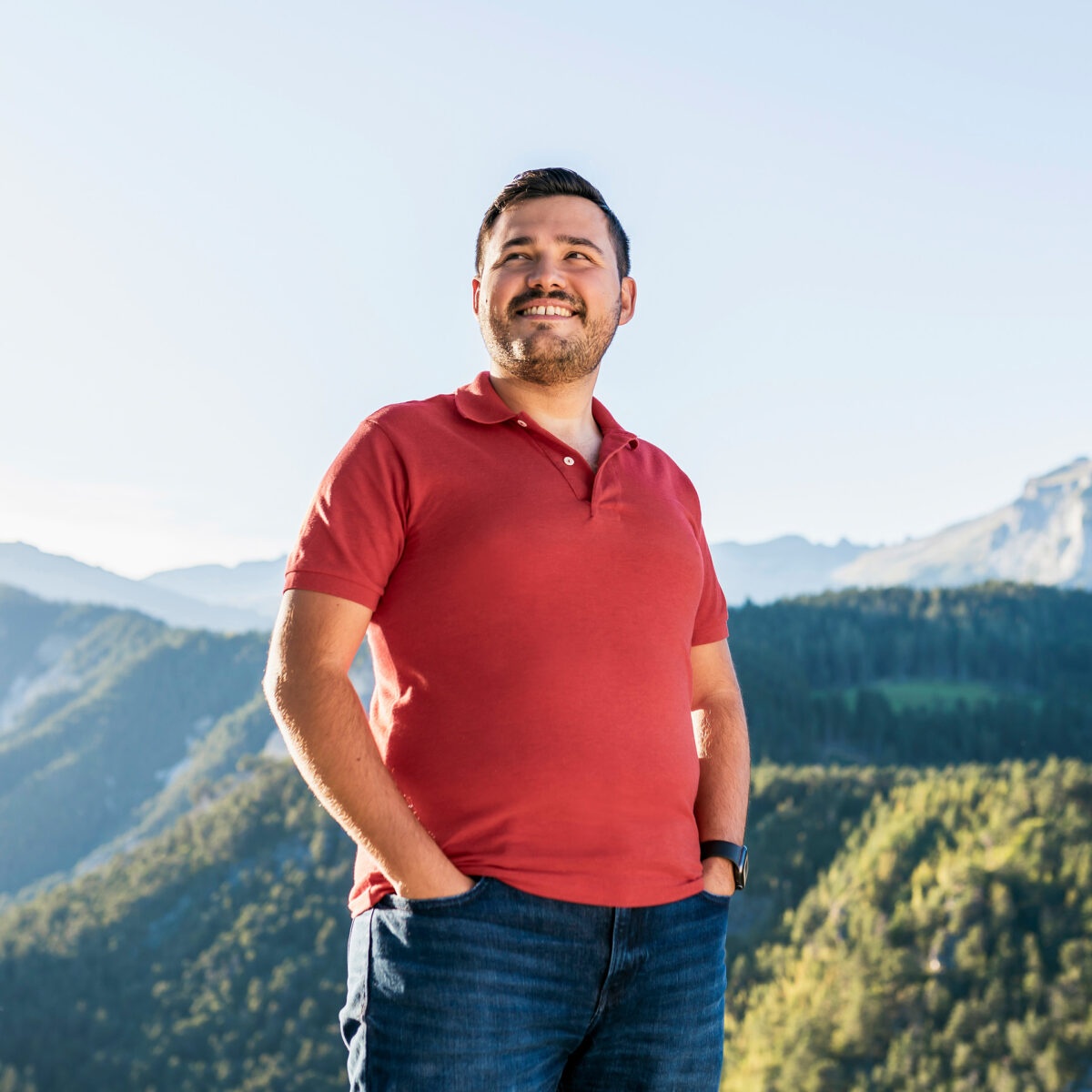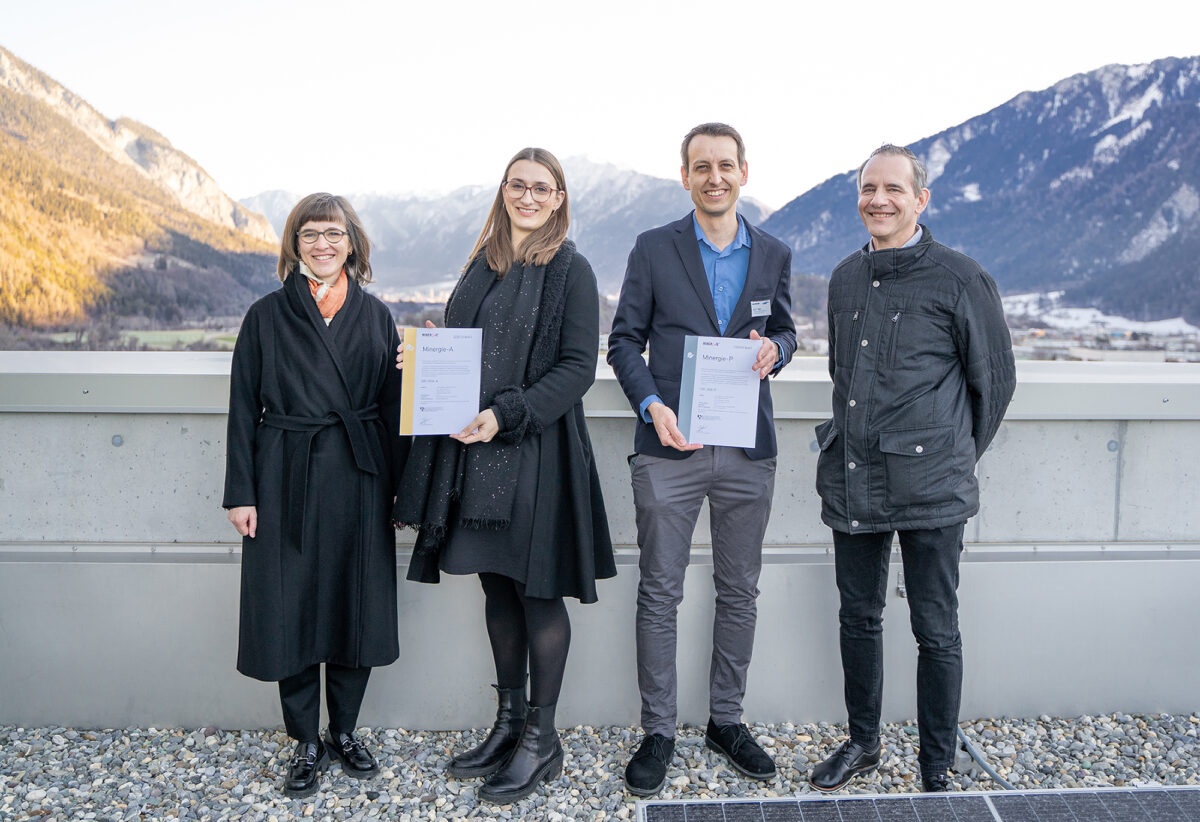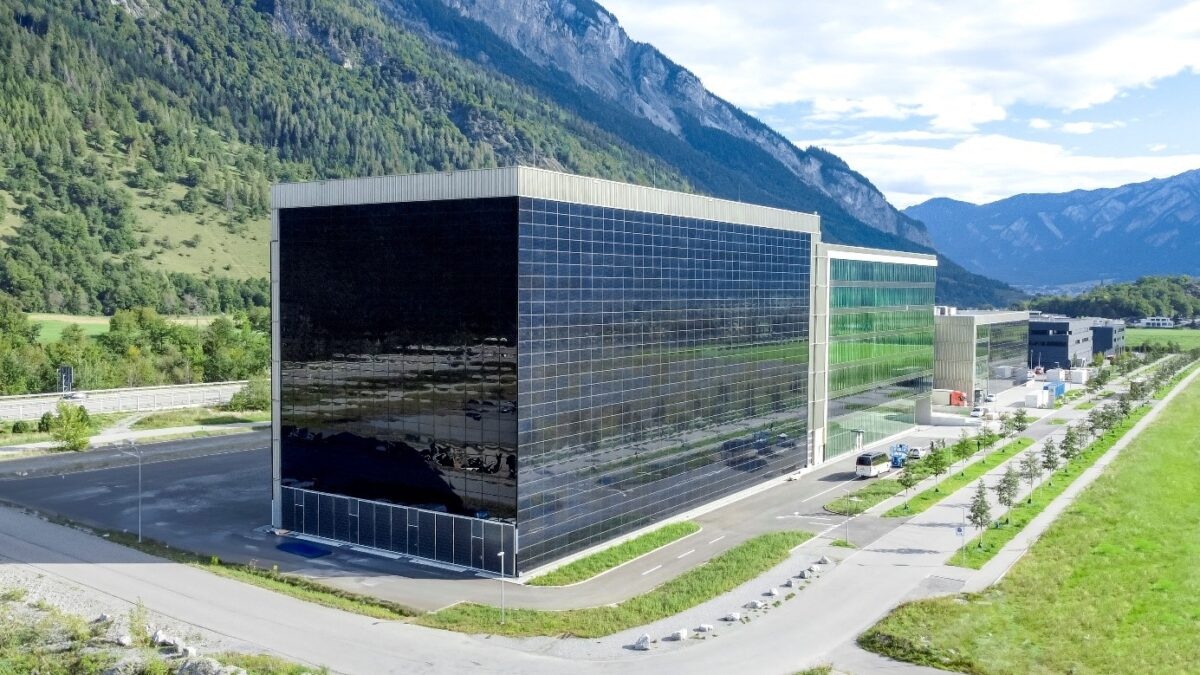High-tech coronavirus aids “made in Graubünden”
Media report19.05.2021Hamilton has been a household name since at least the outbreak of the coronavirus pandemic – even surpassing Formula 1. Throughout the pandemic, it was mainly the high-tech company’s ventilators that got noticed. But Hamilton also contributes with its testing robots, sensors used in vaccine production, and other life science solutions in order to assist with crisis management and boost economic efficiency right across the globe.
Whereas the world seemed to be revolving more slowly during the course of the Covid-19 pandemic, the cogs in the innovative minds at Hamilton, situated between the mountain peaks in the canton of Graubünden, were spinning all the more quickly. According to Achim Ott, Vice President Hamilton Robotics, combating the pandemic was a top priority: “In Bonaduz and Ems, we more than doubled the production of our vital life science devices within a short space of time.” In terms of public perception, it was above all the Hamilton ventilators that sprang specifically to mind, but: “Hamilton still stands for so much more”, emphasizes Achim Ott.
At the outbreak of the pandemic, Hamilton acted behind the scenes both quickly and decisively. “To provide the background solutions, we had to take considerable business risks”, explains Clara Caminada, Vice President Hamilton Process Analytics, who adds: “But this farsightedness paid dividends. We were able to help millions of people right across the world.” Hamilton products can be found at every stage of the worldwide response to the pandemic. Almost all vaccine producers use Hamilton sensors, two thirds of all automated PCR tests run on Hamilton technologies and one out of every five ventilators being used in the world was manufactured by Hamilton.
A do-gooder in the best sense
Hamilton’s pipetting robots are used for mass PCR testing in large laboratories as well as for other types of tests performed in criminal investigation bureaus and blood banks across the globe. Overall, these have produced huge increases in testing capacity, reliability and speed. The more testing that can be carried out, the more effectively the spread of Covid-19 and other diseases can be contained and even prevented.
The turbocharger boosting the testing robots
Since 1971, Hamilton Robotics has been developing and producing technologically advanced automation solutions that are perfectly tailored to its customers’ requirements, with a special focus on innovation and service. We did not neglect these values even during the pandemic, when we had to massively ramp up production. In 2020, Hamilton introduced its revolutionary pipetting channels to the market. Thanks to their magnetic drive technology, these enable high-speed sample processing, alongside precise dosing of minute volumes measuring less than 500 nanoliters. The time span from conception of the idea until the finished product was ready was six years. An investment that paid dividends, as mechanical engineer Jonas Hilti comments: “The result is an innovation for humanity. We take pride in that.” Moreover, this revolutionary technology is easy to operate and has won design prizes such as the Red Dot Award, the German Innovation Award and the iF Design Award.
Faster vaccine production at lower cost
Alongside testing, Hamilton technologies are also making a valuable contribution to the development and production of vaccines, as Caminada confirms: Almost all vaccine producers worldwide work with Hamilton’s biopharma sensors. These speed up development and make production even more reliable. Caminada continues: “We also stepped up production of our sensors by three to five times within a short space of time, simply to enable billions of high-quality vaccine doses to be produced. We are thus helping to ensure that future shortages are prevented as far as possible.
Biologics are on the rise
Generally speaking, the pharmaceutical industry is undergoing a transition from chemically synthesized drugs to biologics. These can treat diseases in a more targeted manner but they are also more complex to manufacture. This is because, by way of example, the CO2 content must be maintained at an ideal ratio in order to maximize the quality and quantity of the cultivated cells. To this end, Hamilton is replacing the expensive, high-maintenance and insufficiently precise measuring instruments and revolutionizing the market with the first maintenance-free sensor, which continuously records the dissolved CO2 content directly in the bioreactor. “These and other Hamilton sensors will speed up the manufacturing process considerably and cut billions from the production costs”, predicts Clara Caminada. For example, 1,000 doses of a monoclonal antibody cost several million US dollars. Any quality problems that are not discovered in time, thus leading to destruction of the entire batch, will consequently cause huge losses. Caminada sums up: “Our sensors are like lane-keeping assistants in cars – they avoid risks when running at full speed and keep production on track.”
The figures speak for themselves
Thanks to many orders received from across the globe, Hamilton recorded rapid growth during the 2020 financial year. Since the beginning of the pandemic, Hamilton Switzerland has created 320 new posts and, with over 1,700 employees, it has now become the largest private employer in the canton of Graubünden (Grisons). Sales revenues doubled year-on-year to CHF 1.2 billion and an increase of just under 50% has already been recorded in the current financial year.





